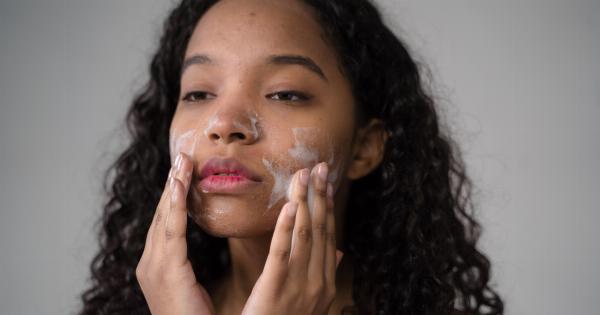The beauty industry has been abuzz with the word peptide for good reason. Peptides are becoming a popular ingredient in skincare products due to their powerful anti-aging properties.
From reducing fine lines and wrinkles to promoting collagen production, the benefits of peptides are endless. In this article, we will dive deep into understanding peptides and how they can help revitalize and rejuvenate your skin.
What are Peptides?
Peptides are chains of amino acids that are the building blocks of proteins. They are naturally occurring in your body and play a crucial role in various physiological functions.
Some of the peptides in your body are responsible for healing wounds, while others regulate hormones and immune functions.
In skincare, peptides stimulate collagen production, reduce inflammation, and fight signs of aging. They are a popular ingredient in anti-aging formulations, especially for mature skin.
Peptides are smaller than proteins, making them more easily absorbed into the skin, making them more effective in addressing specific skin concerns.
How do Peptides Work?
Peptides work by sending signals to your skin cells to behave in a certain way. They act as messengers, telling your body to produce more collagen, reduce inflammation, and improve cell turnover.
When peptides are applied topically, they penetrate the skin barrier and trigger the desired effects.
Peptides are classified based on their function and structure. Some of the most popular peptides used in skincare include:.
Acetyl Hexapeptide-8
Acetyl hexapeptide-8, also known as Argireline, is a popular anti-aging peptide that works by relaxing facial muscles. It reduces the appearance of fine lines and wrinkles, especially around the eyes and mouth.
Argireline mimics the effects of Botulinum toxin, without the harmful side effects or invasive procedures.
Palmitoyl Oligopeptide and Palmitoyl Tetrapeptide-7
Palmitoyl oligopeptide and palmitoyl tetrapeptide-7 work synergistically to stimulate collagen production and reduce inflammation.
Both peptides are derived from amino acids and enhance the production of glycosaminoglycans, which are essential for maintaining the skin’s elasticity and firmness.
Matrixyl 3000
Matrixyl 3000 is a combination of two peptides – palmitoyl oligopeptide and palmitoyl tetrapeptide-7. It stimulates collagen production and reduces the appearance of wrinkles and fine lines. Matrixyl 3000 also improves skin texture and tone.
It’s a powerful ingredient that has been clinically proven to boost collagen production in the skin.
Copper Peptides
Copper peptides are a unique type of peptide that contains copper at its core. Copper is an essential mineral that plays a crucial role in collagen production and wound healing.
Copper peptides promote collagen synthesis and improve the skin’s texture and tone. They also have anti-inflammatory properties and are effective in treating acne and eczema.
Benefits of Peptides in Skincare
The benefits of peptides in skincare are numerous. Here are some of the most significant advantages:.
Reduces Fine Lines and Wrinkles
Peptides stimulate the production of collagen, which is essential for maintaining youthful-looking skin. Collagen keeps the skin firm and elastic, reducing the appearance of fine lines and wrinkles.
Improves Skin Texture and Tone
Peptides improve skin texture and tone by promoting cell turnover. They also increase hydration levels, keeping the skin soft and supple.
Enhances Wound Healing
Peptides have wound healing properties and are effective in treating scars, burns, and other skin injuries. They promote cell growth and tissue repair, reducing the time it takes for the skin to heal.
Reduces Inflammation
Peptides have anti-inflammatory properties and are effective in treating acne and rosacea. They reduce redness and inflammation, calming the skin and restoring its natural balance.
Boosts Collagen Production
Peptides are powerful at stimulating collagen production, which is essential for keeping the skin looking youthful and firm. Collagen production decreases with age, leading to saggy skin, fine lines, and wrinkles.
How to Incorporate Peptides into Your Skincare Routine
If you want to reap the benefits of peptides in your skincare routine, there are various ways to incorporate them. Peptides are available in various forms, including serums, creams, and masks.
Here are some tips for incorporating peptides into your skincare routine:.
Choose the Right Product
Look for products that contain peptides, preferably those that are specific to your skin concern. For instance, if you’re looking to reduce fine lines and wrinkles, look for products that contain Argireline or Matrixyl 3000.
Use Consistently
Peptides take time to work, so use them consistently to see results. Incorporate peptide products into your daily routine, applying them in the morning and at night.
Apply in the Correct Order
Peptide products should be applied after cleansing and toning and before other treatments, such as moisturizers or sunscreen. They should be applied to the entire face and neck, including the eye area.
Avoid Acids and Other Active Ingredients
Acids and other active ingredients can reduce the effectiveness of peptides. Avoid using them at the same time as peptides to get the best results.
Conclusion
Peptides are a powerful ingredient in skincare with numerous benefits. They are effective in reducing fine lines and wrinkles, improving skin texture and tone, enhancing wound healing, reducing inflammation, and boosting collagen production.
Incorporating peptides into your skincare routine is simple, but it’s essential to choose the right product, use it consistently, and apply it in the correct order to see results.





























